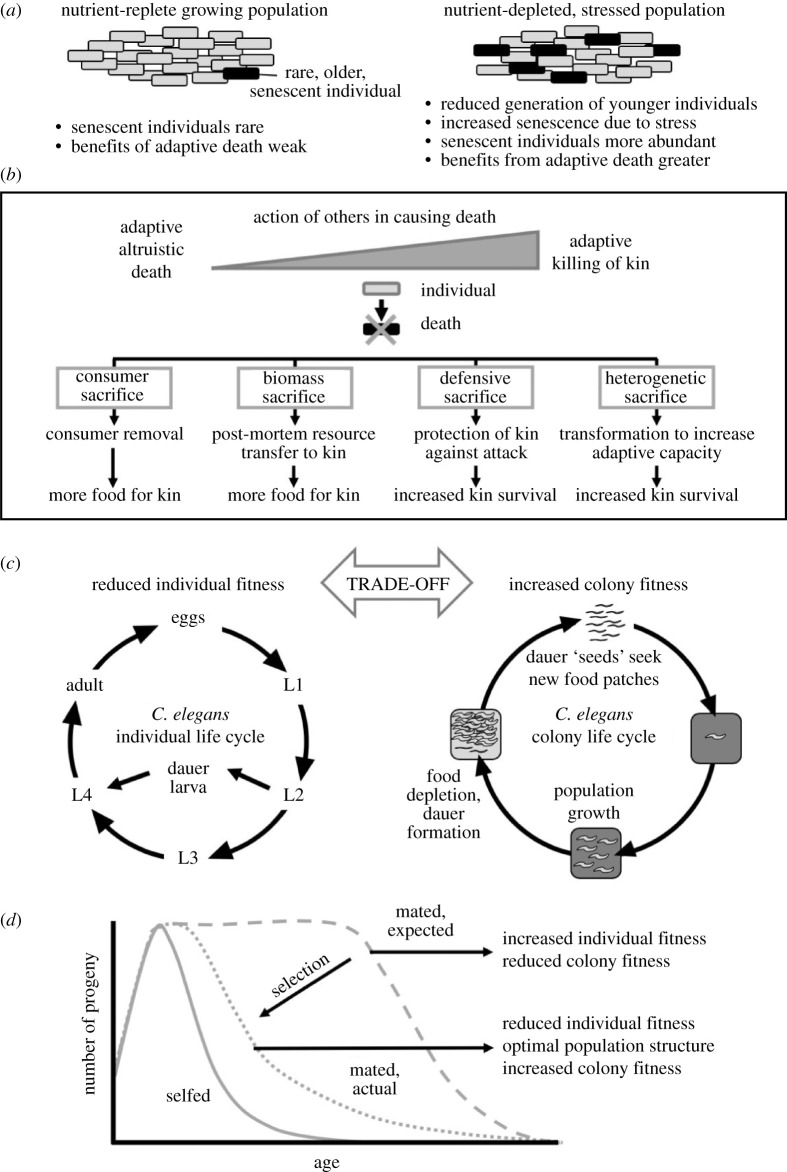Figure 1.
How reduction of individual fitness can increase colony-level fitness. (a) The fitness benefits of adaptive death are expected to be greater in populations with less reproduction and more stress. (b) Adaptive altruistic death and adaptive killing of kin. Adaptive death can be triggered by social interactions with kin. There exists a graded spectrum between adaptive altruistic death resulting from self-destruction, and adaptive killing of kin caused entirely by others. This spectrum ranges from subtle social cues to trigger death, through cannibalism toxins, to murder and predation. (c) Trade-offs between fitness traits at the level of the individual and the colony: reduction of individual fitness traits (including adaptive death) can increase colony fitness, particularly by reducing futile food consumption (that which does not increase dauer yield) [17]. (d) Hypothesis: selection to minimize futile food consumption could explain how mechanistically programmed reproductive senescence in Caenorhabditis promotes colony fitness (see main text for explanation).

